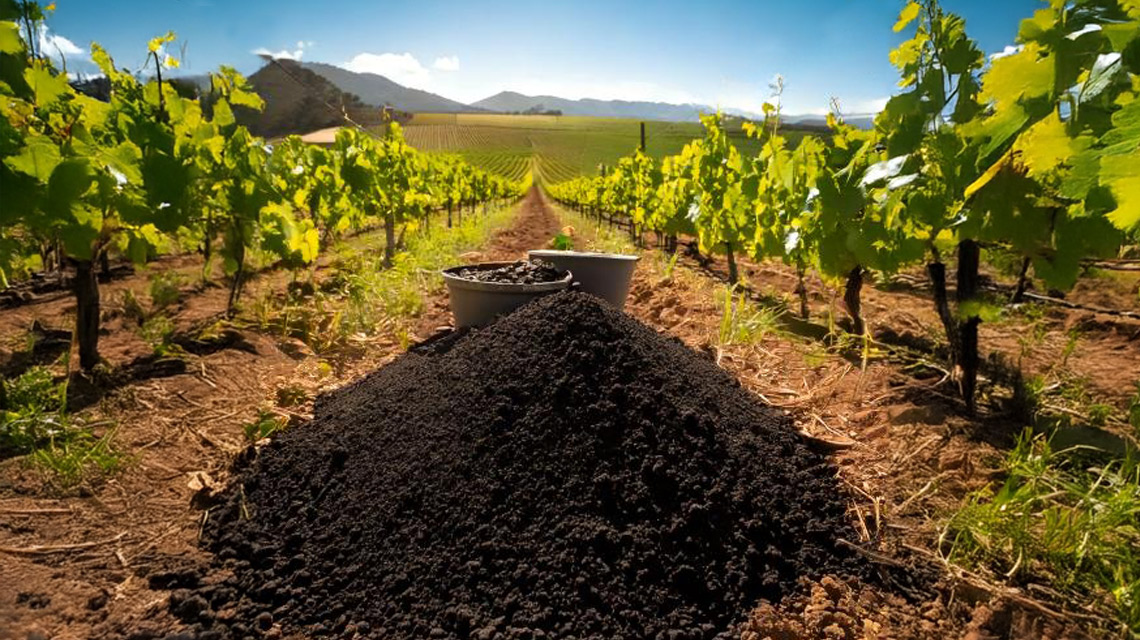Italian National Agency for New Technologies, Energy and Sustainable Economic Development

Energy: Agriculture, a project to produce biochar from vine waste
Objective: sustainable vine cultivation
ENEA has developed a process to produce biochar from vine pruning waste as part of the international project “REVINE”[1], funded with approximately €1.5 million, which involves fifteen Mediterranean partners including ENEA and CREA in Italy.
ENEA researchers are producing biochar, a carbon-rich material from the thermal degradation of biomass, which improves soil fertility and promotes sustainable agricultural practices. This process also generates synthesis gases that can be used for energy applications. Biochar is produced in the plants of the ENEA Trisaia Research Center (Matera), at both laboratory and pilot scale, to be used for viticulture applications in controlled settings and open fields. Researchers have also studied the impact of biochar on soil microorganisms.
The main objective of the project, concluding this year, is to increase vineyard resilience through regenerative agricultural practices, which enhance biodiversity and soil fertility, reducing water consumption and the use of chemical fertilizers and pesticides. The scientific findings of the project can be translated into cultivation and management practices for table grape and wine producing companies participating in the project.
"The project results obtained so far have shown that biochar significantly impacts plant health, resistance to stress and productivity. The analyses on the soil microbiome and cultivated plants have provided important insights into the mechanisms of biochar action and its effectiveness. Furthermore, life cycle analysis has highlighted how biochar production and storage in soil can improve carbon balance", explained the REVINE project manager for ENEA Fiammetta Alagna, researcher at the Department of Energy Technologies and Renewable Sources.
Viticulture is an agricultural activity higly vulnerable to diseases and adverse climatic conditions, therefore necessitating significant use of pesticides and fertilizers to maintain quality and productivity. These practices have a significant impact on both the environment and human health and climate change further exacerbates these issues, making it crucial to accelerate the transition to sustainable agriculture. Biochar can be a valuable tool for improving the resilience of vineyards and contribute to global change mitigation by sequestering carbon in the soil.
“ENEA has a long standing experience in the thermal treatment of biomass for low impact energy production and genomic studies. Thanks to REVINE, we have strenghtened the collaboration with international partners, promoting exchanges of researchers and students. The knowledge acquired during the project can be used to develop new generation biochar tailored to specific soil types and plant needs”, concluded Alagna.
Notes
[1] Regenerative agricultural approaches to improve ecosystem services in Mediterranean vineyards, a project funded as part of the PRIMA program (Partnership for Research and Innovation in the Mediterranean Area) which involves research institutions, wine companies and trade associations from Italy, Portugal, Cyprus, Egypt, Tunisia and France.
